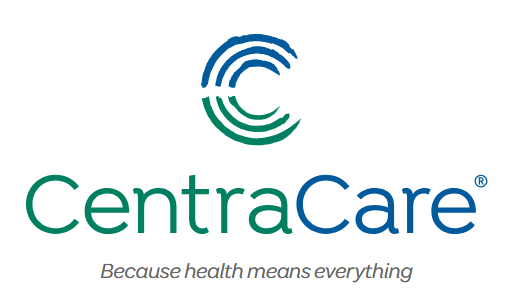
Health Care Homes Sustainability Roadmap
Learning
Learning from other organizations has helped our own organization improve the care that we provide. Healthcare is ever-changing, and the education resources provided by the Health Care Homes Learning Collaborative enables us to learn, adapt and grow.
Established under Minnesota Statutes in 2008, the HCH Learning Collaborative provides certified HCH team members, patients, health care systems, and community-based organizations a structured, collaborative approach to improving service quality through shared learning experiences. Activities support implementation and ongoing development of the HCH care delivery model, provide learning resources, and allow networking and peer sharing among certified HCHs and partners.
In addition to MDH HCH resources, primary care providers can access state and national learning opportunities aimed at sustaining strong primary care, effective care coordination, and improved care quality, experience, and value.
Strategies
Engaging in structured learning activities strategically equips Health Care Homes to implement evidence-informed practices, adapt to changing health care needs, and continuously improve the quality of care. By attending events, participating in workshops, leveraging peer networks, accessing online courses, and requesting technical assistance, care teams strengthen their skills, enhance collaboration, and promote sustainable, high-quality primary care.
- Attend Learning Days
Participate in the HCH annual conference, which brings together health care providers, public health professionals, and community partners from across Minnesota to share expertise, discuss evidence-informed practices, and build professional relationships.
- Participate in Workshops
Engage in in-depth, in-person training sessions on topics relevant to HCH-certified organizations and their workforce.
- Leverage Peer-to-Peer Networking
Participate in structured networking during learning events or request small, topic-specific peer-to-peer conversations facilitated by HCH Practice Improvement Specialists.
- Access Online Learning via MDH Learning Center
Utilize free, on-demand, CEU-eligible online courses designed for HCH care team members at all levels: MDH Learning Center
- Request Technical Assistance
Work with assigned HCH Practice Improvement Specialists to support certification, recertification, and other program aspects.
- Subscribe to the LEARN Bulletin
Receive updates on upcoming learning opportunities and resources: LEARN: Collaborative Learning for the Future of Health
Resources
The following resources provide comprehensive learning opportunities, from structured conferences and workshops to online courses and technical assistance. They enable certified Health Care Homes teams to stay current with best practices, strengthen competencies, and foster a culture of continuous learning that supports high-quality, equitable, and sustainable care.
- Webinars | Primary Care Collaborative (PCC)
- NACHC 2025 Training and Technical Assistance Offerings | National Association of Community Health Centers (NACHC)
- Primary Care Research Webinars | Agency for Healthcare Research and Quality (AHRQ)
- HCH Learning Collaborative | Minnesota Department of Health (MDH)
- Community Health Worker Training Courses | Minnesota Department of Health (MDH)
- Resources for Action | Stratis Health
- Resources | Primary Care Development Corporation
- Patient Care Resources | American Academy of Family Physicians (AAFP)
Success Stories
How did participation in the BOLD project impact the professional development of your HCH team members?
The BOLD project encouraged professional development through quality improvement activities that increased providers' knowledge of cognitive screenings and clinical practice changes. Collaborating on the BOLD project with MDH and Stratis Health was mutually beneficial as Genevive is committed to growing provider skills, broadening their knowledge, and taking advantage of learning and quality improvement opportunities. This work was relevant because the Genevive BOLD project team had the flexibility to implement specific strategies based on opportunities identified within our practice through the needs assessment process and alignment with existing Genevive initiatives, enabling us to think beyond our current practice and into the future.
The team performed an organizational needs assessment to identify opportunities to advance dementia risk reduction, early diagnosis, and caregiver support, educate providers on dementia cognitive screening tools, and address provider workflow barriers to completing screenings. Our needs assessment identified that the community of interest is our primary care patients residing in assisted living and skilled nursing facilities. Based on the need to improve support for people with dementia and their caregivers to enhance their health, well-being, and independence, and educate our providers on sources of reliable information about dementia screening tools, we: 1) Implemented and integrated four cognitive screening templates into our Electronic Health Record (EHR) that is optional but encouraged to use and requires one additional click, 2) and created a provider reference guide to assist with interpreting ten various cognitive screenings, and 3) developed a caregiver support resource tool.
Do you have any recommendations for other certified HCHs regarding incorporating HCH Learning Collaborative activities?
First, I recommend conducting an organizational evaluation to identify barriers, strengths, and opportunities for improvement to prioritize project strategies before determining which HCH initiative to implement into our practice. Our project initiatives must align with organizational goals, incorporating the Geriatrics 5Ms framework (Mobility, Medications, Mind, Multi-complexity, and Matters Most). We also had to think about our electronic health records system's (EHR) strengths and limitations and how to integrate the cognitive screening tools documentation into provider workflows. Additionally, engaging other team members not part of the BOLD project team was important, as they offered real-world insight.
Furthermore, we provided education on performing cognitive assessments to reduce provider frustration and confusion. The paper format of the tools may be critiqued as incompatible with the EHR, creating a need to scan documents, which is the practice at Genevive before implementation into the provider encounter notes. It's essential to be aware of outdated workflow practices that can be improved by incorporating technology such as your EHR to guide providers, improve efficiency, and provide immediate submission and access to results.
Finally, beginning with small-scale strategic initiatives is okay; small changes allow us to fine-tune the new processes, demonstrate their impact on practices and outcomes, and set future goals such as analytics and data tracking for the type and frequency of cognitive screenings utilized by our providers.
Successful implementation requires a multidimensional approach, including culture change and provider-friendly workflow.

Ruby Schoen, DNP, APRN, A-GNP-C, and the Genevive BOLD Grant team
Over the past year, CentraCare’s Care Coordination team participated in Dr. Erin Erickson’s health coaching training—an experience that reshaped how we support patients, communicate as a team, and sustain meaningful, high-quality care. What began as a professional development opportunity quickly became a foundational shift in how we approach behavior change. As our patient population grew more complex, we noticed many individuals feeling overwhelmed, unsure where to start, or lacking confidence in managing chronic conditions. While our nurses are skilled in education and chronic disease management, we recognized that information alone wasn’t enough. Patients needed coaching, accountability, and support to uncover their own motivation, and that realization prompted us to partner with the Health Care Homes Learning Collaborative.

The Health Care Homes team worked with CentraCare leaders, asking questions in order to tailor content to meet the needs of our staff and ultimately those of other certified organizations. The training introduced a mindset shift that deeply changed our approach: moving from directing patients to empowering them. Instead of telling patients what to do, our nurses began partnering with them to discover what they were ready for, willing to do, and capable of sustaining. Motivational interviewing, reflective listening, and strengths-based goal setting became core tools. We learned to enter each call with curiosity instead of instruction—asking thoughtful questions that help patients identify their own “why.” This shift led to patients feeling more heard, more engaged, and more confident in taking the next step.
As these skills took root, we saw clear changes in the quality of our conversations. Interactions became more patient-led, more honest, and more productive. Patients who once felt stuck began identifying realistic, manageable steps. Those hesitant or unsure often became more open when we approached them with reflections rather than education alone. Perhaps most importantly, we saw improved follow-through when goals were co-created instead of assigned. Whether the focus was medication adherence, blood sugar monitoring, daily routines, or follow-up care, the coaching mindset helped reduce barriers and build momentum.
One recent example highlights this well. A patient struggling with diabetes management had long avoided checking her blood sugars. Using reflections and the ask–tell–ask method, the nurse uncovered the deeper barrier: the patient feared failing again. That moment of understanding shifted the entire conversation. Together, they identified small, achievable steps rooted in the patient’s own motivation. Over the following weeks, she began monitoring more consistently and expressed pride in her progress—progress that came from empowerment, not direction.
The impact extended beyond patient outcomes. Many staff shared that health coaching reduced their stress and made calls feel more purposeful. By resisting the urge to “fix” everything, nurses felt more grounded and better able to guide patients without carrying the full burden of their challenges. The training also strengthened team collaboration, confidence in navigating difficult conversations, and the ability to manage complex cases with clarity rather than overwhelm. These skills support long-term workforce wellbeing—an essential component of sustainable care coordination.
Integrating health coaching into our daily work has transformed both how we partner with patients and how we support one another. The approach has strengthened engagement, reinforced care plans, and helped patients feel ownership of their health journey. For organizations considering health coaching training, our strongest advice is to start small and trust the process. Coaching doesn’t add to the workload—it enhances the work already being done, making it more effective, more sustainable, and more centered on what matters most to patients. Our partnership with Health Care Homes has been invaluable, and we are grateful for the opportunity to continue building a coaching-informed culture that supports long-term, meaningful change.
